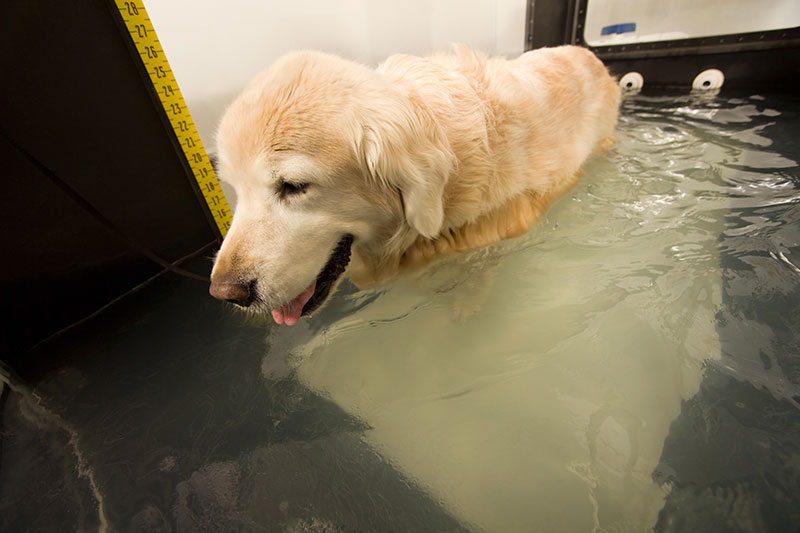All About Canine Rehabilitation

The vets and staff at The Whole Pet Vet are absolutely committed to bring the best care to you and your furry friends. Beyond traditional veterinary medicine, we are able to help more animals in different ways with the alternative and adjunctive therapies we offer.
While most of our clients are familiar with things like acupuncture, chiropractic care, and medicinal herbs and supplements, we find that less people are familiar with the term ‘canine rehabilitation’. This doesn’t make it any less important, though – in fact canine rehabilitation is a cornerstone in treating many of our four-legged patients.
Canine Rehabilitation Basics
Canine rehabilitation therapy refers to the use of specific techniques with the goal of decreasing pain, improving function, and treating injury or disease. Much like a physical therapist in the human realm, veterinary rehabilitation therapists such as our own Dr. Wheeler undergo extensive training and certification in order to understand how to best help pets in need.
Canine rehabilitation involves the relationships between the muscles, tendons, bones, ligaments, and nerves within the body. By having an in-depth concept of the anatomy and physiology involved in the body, rehab therapists can support healing, decrease inflammation and pain, build strength, and improve range of motion.
A pet undergoing rehabilitation therapy has a personal comprehensive plan developed that includes one or more beneficial modalities or techniques. These might include things like:
- Therapeutic massage
- Exercises and stretching
- Passive range of motion exercises
- Laser therapy
- Underwater treadmill
- Therapeutic ultrasound
When used in combination with specific goals that are unique to the individual animal, these techniques can have tremendous results.
How Rehab Helps
Many pets can benefit from the techniques used in canine rehabilitation. Almost all orthopedic and neurological conditions can be improved with a good rehab plan. You would never have knee surgery without doing some follow up physical therapy, and our pets are no different.
Examples of pet patients that can see benefits from rehabilitation include those who:
- Are healing after a bone fracture
- Have had a tendon or ligament injury
- Have had an orthopedic surgery performed
- Suffer from arthritis or other degenerative joint conditions
- Are affected by back pain and/or intervertebral disc disease
- Have a neurological condition
- Need help with weight loss
- Can benefit from a conditioning program such as canine athletes
Just about all of our patients can benefit from rehabilitation therapy as part of their care. Dr. Wheeler evaluates each patient to come up with appropriate goals and a personalized plan that may incorporate other alternative or traditional therapies. If you think that your pet might benefit, please don’t hesitate to call us for more information.
